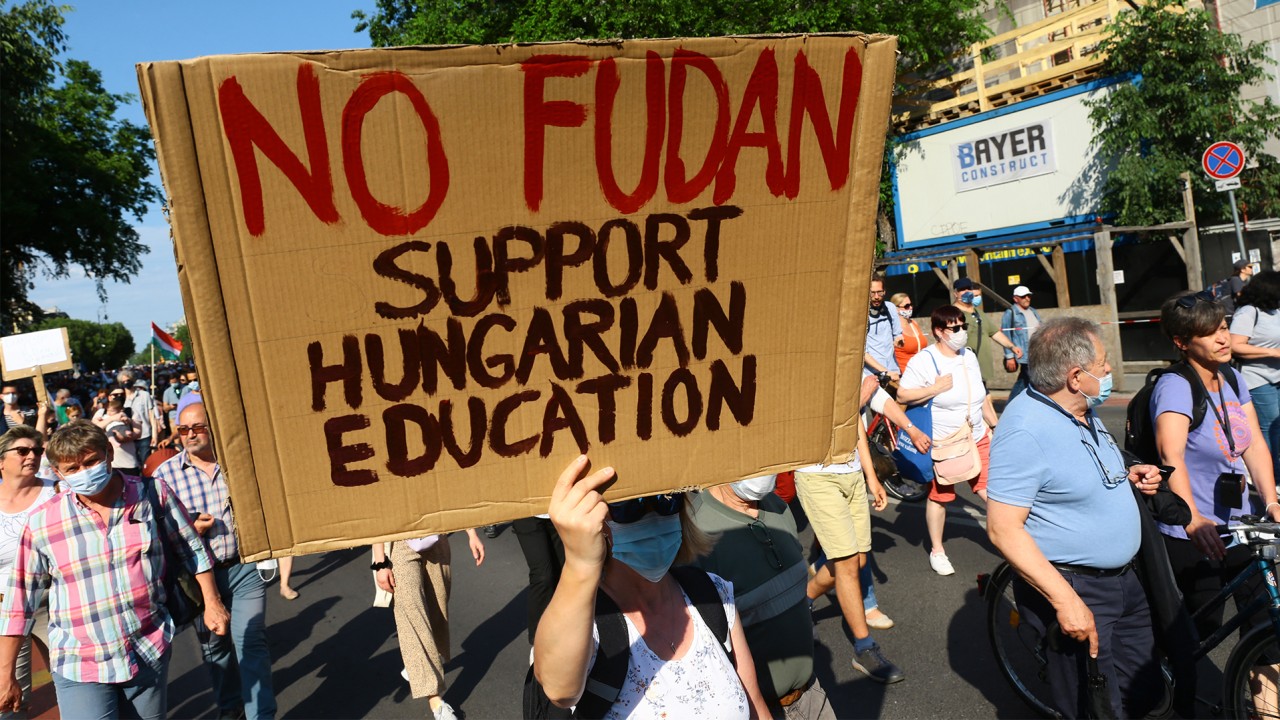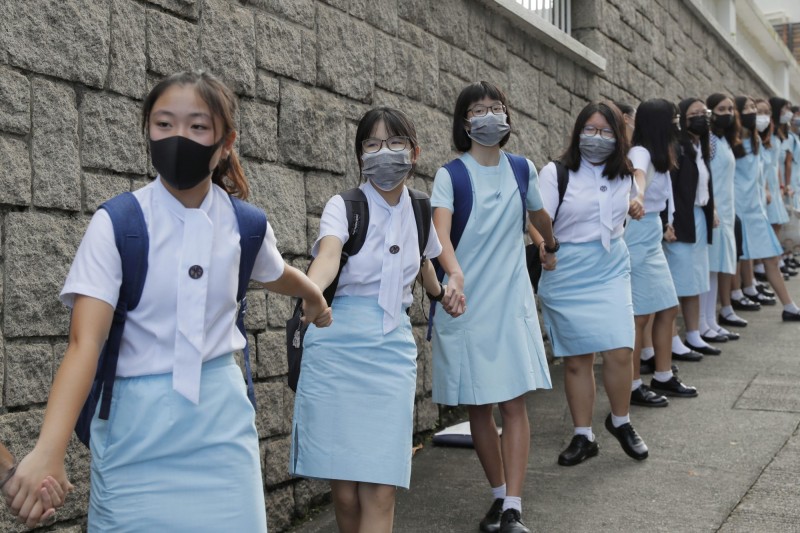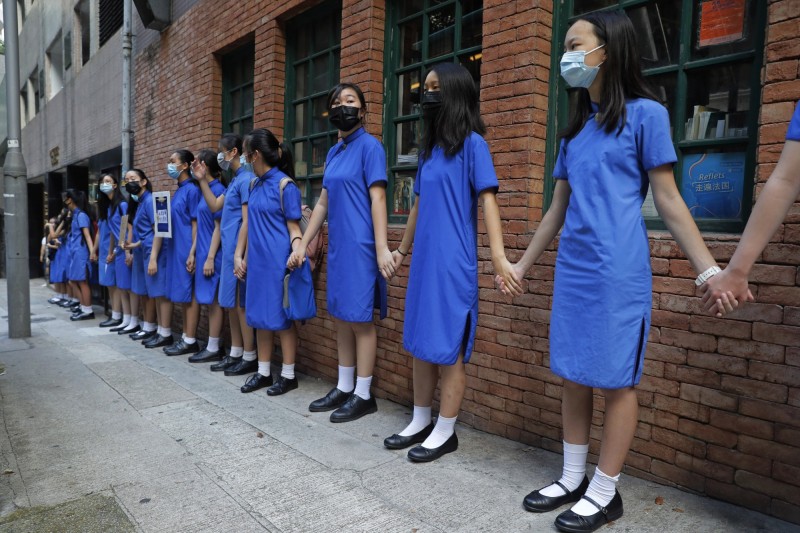The timing of Xi Jinping's crackdown on 'effeminate' men, gamers and private tutoring cannot be ignored
Posted 4h ago
4 hours ago
, updated 4h ago
4 hours ago
Xi Jinping in a black coat
An essay published in Chinese state media describes Xi Jinping's recent edicts as "revolutionary".( Reuters: Darrin Zammit Lupi )
Share
It takes a tremendous amount of political power to successfully destroy millions of jobs and bankrupt large companies with a single decision.
And it takes an even more extraordinary level of power, unseen in modern times, for those most affected to stay publicly silent about it.
And yet that's where Xi Jinping's China is at.
Last month, with a sudden, jarring policy announcement designed to ease the financial burden on families paying for extra tuition for children, he decimated the country's private tutoring sector that is estimated to employ 10 million people.
Anecdotally, the policy appears to be quite popular with many parents fed up with the rising costs of raising a child in a hyper-competitive education system.
But this week, major education provider Juren Education announced bankruptcy, apologising to parents in a statement that didn't mention the government's sudden announcement had ruined its business.
The company simply blamed its woes on "operating difficulties".
Small children waving Chinese flags, with masks pulled down below their chins
Chinese children will no longer endure hours of gruelling private classes, with the government clamping down on tutoring. ( Reuters )
In a country of one party-rule, no free media, no independent civil society groups and no opposition political parties, sudden edicts heralding big policy change — both good and bad — have long been part of how communist China works.
But Xi has been on a run of late that is earning him both admiration as a bold reformer curing society's ills, and criticism as an unchecked leader steering the country towards a savvy 21st century version of the Cultural Revolution.
'Grandpa Xi always cares about us'
Aside from private tutoring, Xi's government has taken aim at the entertainment industry, financial commentators and, most prominently, big tech.
A swiftly implemented regulation this week will limit minors to three hours of online gaming per week over one-hour fixed blocs on weekend evenings.
The big tech companies affected, including Tencent, have offered no criticism of a plan formed with good intentions, but implemented with a very restrictive and paternalistic framework.
The tech sector is still reeling from months of investigations and new policies that have seen IPOs cancelled, major companies investigated and share prices of large Chinese tech companies falling.
Two pages from a school book in Mandarin featuring a photo of Xi Jinping
"We are all Chinese, we each deeply love our motherland, just as Grandpa Xi said, patriotism is people's most fundamental, most enduring emotion, it's the source of each person's virtue," one passage in the book reads. ( Supplied )
In education, aside from shutting down for-profit extra-curricular tutoring firms, Xi has also introduced his ideology, called "Xi Jinping Thought" into primary schools this week.
The textbook features his image prominently and teaches children that "Grandpa Xi always cares about us".
Another page says: "Grandpa Xi teaches us a person can have many aspirations, but the most important aspiration in life should be for the motherland and the people to be intertwined together."
Two pages from a school book in Mandarin featuring a photo of Xi Jinping
The Xi Jinping Thought textbook is being rolled out in primary schools in China this week.( Supplied )
In entertainment, the downfall of high-profile stars for various reasons has coincided with a slew of new restrictions for performers and their fans, a direct intervention to steer China's culture industry in a "healthier" direction.
Such interventions have been prevalent during Xi's nine years in power.
For example, he banned the display of male earrings and tattoos on performers and sports stars in 2018.
But on September 2, he went further via China's National Radio and Television Administration, which published guidelines urging broadcasters to stop programs portraying "effeminate" behaviour and other "warped" content.
The Government body also said the selection of actors and guests should be carefully controlled, with political literacy and moral conduct included as criteria.
China goes through a 'profound revolution'
The latest broadcast regulation came days after an opinion article by a leftist writer and WeChat blogger named Li Guangman raised eyebrows inside and outside China for calling for a more "masculine" culture.
He wrote that huge changes are sweeping the country and China's "culture market will no longer become a paradise for effeminate men".
Kris Wu in a pale blue suit and sunglasses, gripping his lapels
Actor and singer Kris Wu, who was recently arrested on suspicion of rape, was referred to as "young, fresh meat" in China. ( Reuters: Charles Platiau )
The article, spread far and wide by government media, combined with the latest regulations appear to show that Xi and the other seven middle-aged men who run China are seriously dismayed at the popularity of the many make-up wearing young male singers and actors in China's celebrity culture.
But the opinion piece was not just about masculinity.
It pulled together all of Xi's major recent power moves, including scuttling billionaire Jack Ma's plan for the world's biggest initial public offering in the US, to "rectifying" the financial sector, to cleaning up the cultural entertainment sphere through to his new focus of wealth redistribution called "common prosperity".
Jack Ma in a suit smiles and waves
Jack Ma vanished for several months last year on the eve of another commercial success for his company, Alibaba. ( Reuters: Charles Platiau )
"This a transformation from capital-centred to people-centred."
Such language carries a particular sensitivity in China due to the unhealed social trauma of the Cultural Revolution through the 1960s and 1970s.
The decade-long bloody purge, led by Mao Zedong, of people branded "counter-revolutionaries" and capitalists left the country in ruins.
But Li described the recent changes as the Chinese Communist Party returning to its socialist roots and fired a shot across the bow of those who assume the boom times of recent decades will continue.
"The capital market will no longer be a paradise for capitalists to get rich overnight … news and public opinion will no longer be a land to worship Western culture, the Red colour is back," Li wrote.
Is this a Cultural Revolution 2.0?
Analysts are split on how much to read into the article as a reflection of Xi's views.
"This article definitely represents Xi Jinping's voice. It's no normal public WeChat blog," said former Hong Kong media executive Wong Kim in an online commentary.
"At the very least, the author has felt the pulse of Xi Jinping in the writing."
Wong felt it was particularly noteworthy that all the major state media platforms republished it.
Xi Jinping delivers a speech in front of red doors and a podium with a sickle and hammer.
Some analysts believe Xi Jinping's recent moves show China is in the midst of a "Cultural Revolution 2.0". ( AP: Xinhua/Li Xueren )
Others, such as Beijing-based former academic Wu Qiang, are more dismissive of its significance.
But Wu believes comparisons to the Cultural Revolution are appropriate, hinting that Xi still has some ideological resistance inside the Chinese Communist Party.
"The Cultural Revolution 2.0 already commenced in all fields over the past nine years, just in a more subtle way," he said.
The timing of Xi's moves can't be ignored
The flurry of activity comes roughly a year out from a major event in China's political history.
The 20th Communist Party Congress will mark Xi's decade in power.
Xi's two immediate predecessors stepped down from the top job after 10 years, with potential successors jostling for internal support among the party elite ahead of each Congress.
Beijing removed the two-term limit for the presidency in 2018, which could allow Xi to rule for life.
But Xi may be looking to shore up his support within the party and among China's population before he makes an announcement.
Xi Jinping saunters past a row of applauding Chinese delegates in masks
Xi Jinping will mark 10 years in office next year, though rules have been changed so there are no term limits for Chinese presidents. ( AP: Andy Wong )
"It's the same in any political system," Richard McGregor, a China analyst at the Lowy Institute, said.
"The closer you get to an election or a selection, it means decisions are shaped by it."
He believes Xi's rolling campaigns across different sectors are setting the scene for an historic third term.
And the introduction of Xi Jinping Thought in primary schools, along with an app named Study Xi, Strong Nation used widely by party members and government workers, is geared towards next year.
"All of which reinforces the idea that he must stay on."
Posted 4h ago
4 hours ago
, updated 4h ago
4 hours ago










